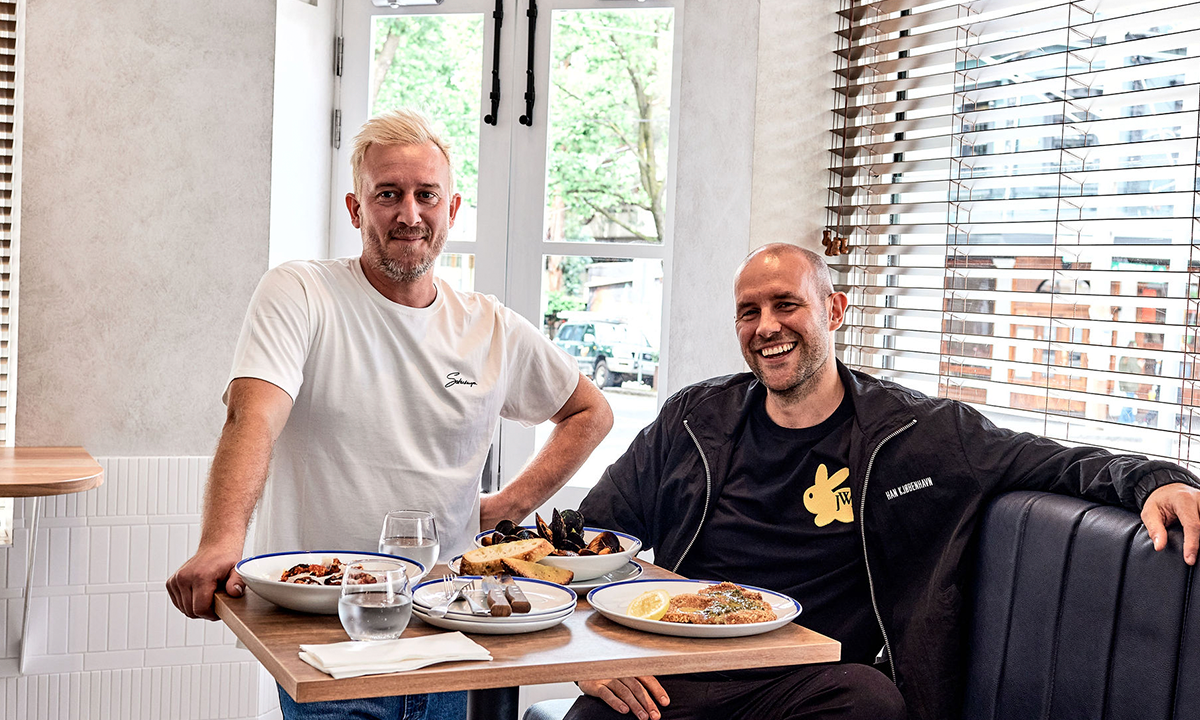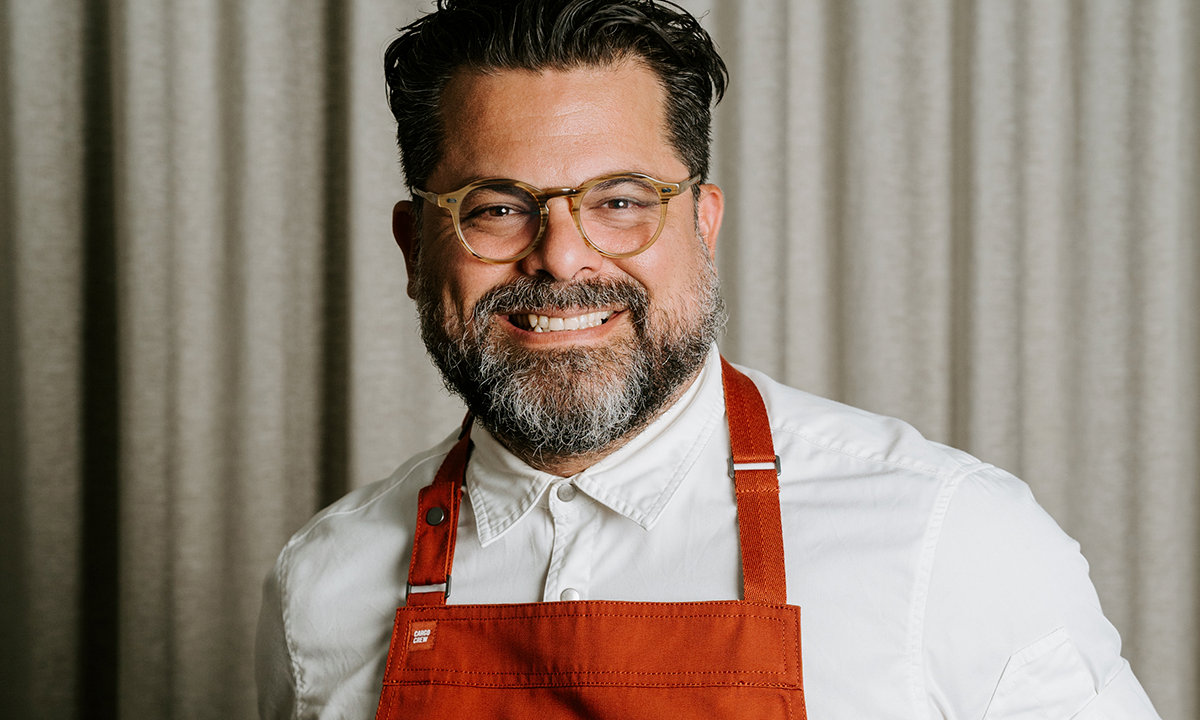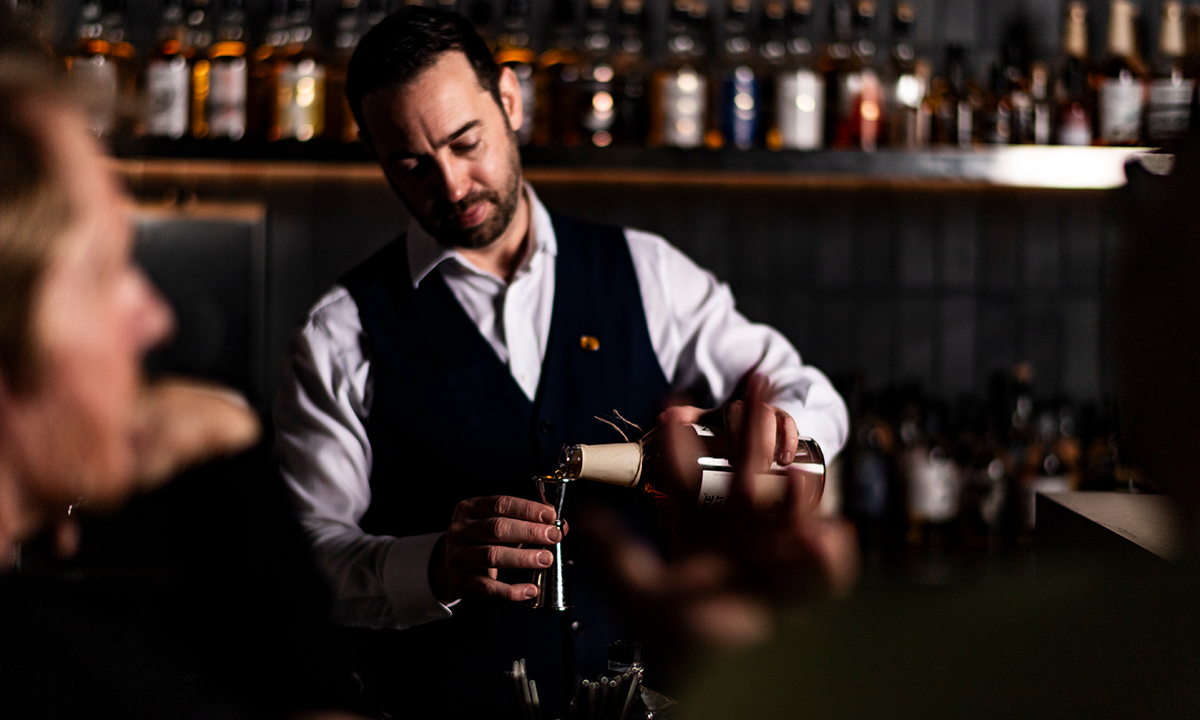No matter how stunningly you craft them, your brilliant dishes alone won’t win over the citizen restaurant reviewers. When customers spread word of their experiences, these days their soapbox is big and if they’re dissatisfied, there’s good reason to not blow it off. Did you know humans are hard-wired to dwell on, respond more strongly to, and more clearly remember bad happenings over good ones? It’s called Negativity Bias and it’s an actual scientific ‘thing’. Humans love a spot of negativity and in the hospitality game, you don’t want to offer them fodder to work with.
Service. It’s a simple concept, and yet…
The concept of restaurant service seems simple. As chef Andy Lockyear of Gertrude Hotel (pictured above left with business partner Iza Dawkins on the right; image by Niki Schuch) in Melbourne’s Fitzroy describes it, it comes down to “a knowledge of the menu, being able to answer any customer queries with ease, attentiveness (but not being overly so), and reading the needs of a table before having to be asked for something – these make for a seamless experience,” he states. How hard can it be? And yet so many places miss the mark. Why? And how, perhaps, could they improve?
Sincerity, honesty and empathy
Executive Chef Alejandro Saravia of Melbourne’s Farmer’s Daughters has strong thoughts on the subject. Sincerity and honesty, no pushiness or overt upselling, asking all the right questions at the beginning (such as, is there a special occasion guests are celebrating?) and serving with empathy, are all part of his credo. To achieve this, constant training, he says, is vital.
“As in life, he says, “education is key. [It’s] an investment in what you want to achieve.” To keep staff engaged, he says “we work to a monthly plan – maybe it’s a focus on wine, and we’ll invite our supplier in to run a session. Or amazing suppliers (winemakers, producers, farmers, reps and distillers) have incredible knowledge and we involve them directly to help our service staff with their knowledge.”
Knowledge is essential
Lockyear agrees. The Rockpool alum says that “staff not knowing the menu pains me! Training and knowledge are key and even our casuals have equal training.” He explains, “we do daily briefings before service where we chat through even what we do and why are we here – we’re constantly creating reminders and having open conversations with staff.” He finds this helps keep them consistently focused and on the ball. “Distracted wait staff and not being attentive can ruin a dining experience,” he explains.
For Joel Best, chef and owner of Sydney’s Besuto Omakase and Bar Besuto, the challenges of delivering a multi-course Japanese-style omakase menu mean providing particularly thoughtful service, delivered with an equally thorough knowledge of the restaurant’s curated drinks menu as well as the many daily-changing offerings.
“Good service starts the minute a customer walks in the door,” he says, and he’s adamant his guests should immediately feel like they’re in someone’s home. “Staff,” he says, “need to be educated in this element” as much as they are in the food, wine, sake, whiskey and other deliverables. He defines great service being where the diner is taken through an entire experience, the waitstaff guiding the natural ebbs and flows, anticipating every need, and even delivering each course with “a short story on each element.” He’s determined the experience he provides should be “unforgettable” and the way to achieve this is through staff education “on each element, with continued training in systems and of [staff] palates.”
Incentivising staff for healthy retention
Recruitment and retention issues can negatively impact service. Best notes on how proper staffing levels are crucial to the delivery of top-class service. “At the moment, the cost of staff is very high,” he says, saying that it’s so tough that establishments maybe can’t be blamed if their staffing ratios are ‘off’. But he equates proper levels directly to revenue: “I have been in restaurants recently waiting to order a drink… and the waiter never came.” He believes proper attentiveness on the floor is a corollary of staff training and treatment, saying that in his view, “if your staff are looked after, then your customers will be looked after too.” Which of course, equals sales.
Saravia runs a system where a high score in training is rewarded with a gifted dinner for two with a bottle of wine. He believes that when staff put in the time and effort toward greater customer service and sales, they deserve to be rewarded.
Inviting and dealing with feedback
Saravia also explains how important customer feedback is, and says his booking system, Seven Rooms, provides easy opportunities for leaving it. “We ask how the experience was– from service to food, ambience, music, how noisy it was etc. We send an email the day after, thanking our customers for coming and letting them know we hope to see them again soon. To me, this is as important as the experience in the restaurant itself.”
“With any business nowadays, information is key”, he goes on. The more we know about our customers, the more we know about what offerings appeal. If we’re doing something right, we can continue doing it”. Lockyear similarly rates the importance of feedback, saying how crucial it is for ensuring return custom, and how “any concerns or issues [that arise] during service are always addressed immediately. Any feedback that is provided is always reviewed and we take it on board to do better.”




















































































